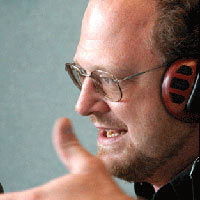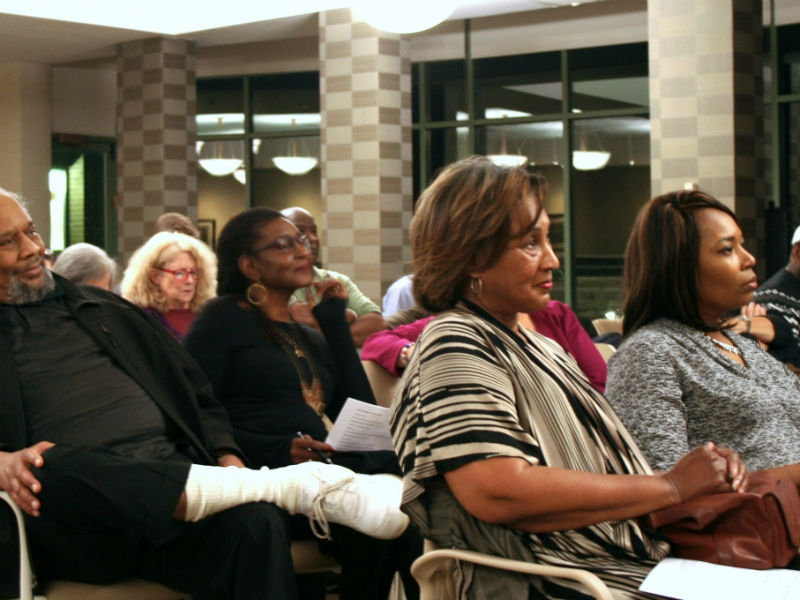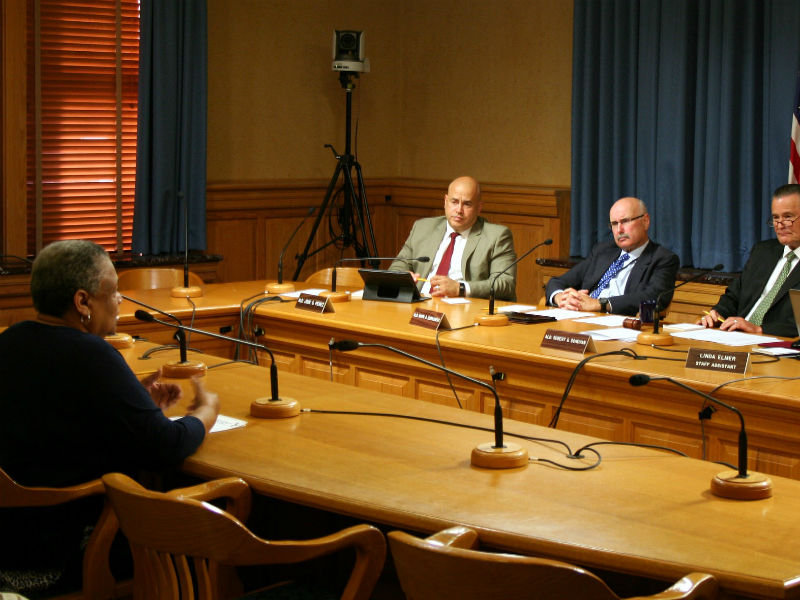The opinions expressed in this piece do not necessarily reflect the opinions of OnMilwaukee.com, its advertisers or editorial staff.
The Milwaukee Police Department has been lax in installing cameras in squad cars, even though it has been given the green light to do so and has equipment lying around ready to get our men in blue on the contributors' list for the "Cops" TV show.
The city would have about 200 cameras if it gets a grant for 46 more. Only 67 have been installed and are functional, according to the department. Another 37 have been installed but are not functional.
Ald. Robert Puente asked why the department has lagged in its installation program, but police reps couldn't explain.
"I'd like to know why they aren't installed. ... I think it's imperative that they are," said Puente, a police captain on leave to be an alderman. "(Cameras) remove a lot of doubt and we need that for our community."
The department is ready to get a $355,414 Department of Justice grant for 46 more cameras. The others were acquired through a mix of other grants and public money.
A report supplied by the Legislative Reference Bureau also noted that the department has been lax in installing what's known as "Rapid ID" devices in the squads. Rapid ID is used by officers in the field to take two fingerprints that can be sent to a computer database to see if the detainee has a criminal record.
Even though the $493,322 grant for 93 devices started in September 2005, the department has only installed 11 devices.
"The Police Department's Data Services Division has indicated that unexpected issues slowing the process of the network upgrade have prevented the deployment of the remaining ... devices," according to the write-up. "Provided there are no setbacks, the division expects to begin deploying the remaining units in the following two weeks."
Water Works: Milwaukee City Comptroller Wally Morics furthered his case this week to lease the city's Water Works as a way to increase revenue for the cash-strapped city. He pointed out that the city's structural deficit would surpass $50 million next year, since the budget this year was balanced with some $60 million in one-time revenue sources.
"We have one bullet left and that's the Water Works," Morics told the Common Council's Steering and Rules Committee.
Morics said the city has 24 to 30 months to figure out how to deal with the structural deficit and asked the Council's blessing to find out how much the Water Works would be worth on the open market. Morics said leasing the Water Works could create an endowment that would be its own revenue stream for the city. Given the recent performance of the stock market, that could be a losing venture as well.
We're No.1! Milwaukee's goals for the next Legislative session center on the usual suspects, led by the annual favorite -- increased shared revenue from the state. The state has frozen shared revenue for years, which has been the bane of Milwaukee's mayors since the practice began. Milwaukee's largest source of revenue is the $237.7 million in shared revenue. In real dollars, the shared revenue payment has declined by $102 million since 1995, says Paul Vornholt, director of the city's Intergovernmental Relations Division: "An increase in the state's commitment of this appropriation is imperative."
Vornholt presented a laundry list of legislative goals to the Council's Judiciary Committee. The list featured the wants from city departments.
Among the broad themes were:
- Create a new funding mechanism for mass transit through a Regional Transportation Authority.
- Fix the school voucher funding flaws. Vornholt's report states that the funding formula was designed in a manner that greatly increases costs for Milwaukee taxpayers. Voucher students reduce school aid that comes to Milwaukee. The city will argue in Madison that the state's share of the voucher payment should be the same as the portion it pays for public school students.
- Create new foreclosure prevention and intervention programs. Foreclosure filings are up 35 percent this year compared to last.
- Ask the legislature to give the city the right to boot illegally parked cars. The city also wants the state to give the city 9-1-1 surcharge money, which the county now gets because the city's radio system is not as compatible as the county's.
- Close loophole in state law that allow for easy access to firearms by criminals.
Fighting the Sick ... Leave: It's so early in the day there's no need to call in sick. Fresh off announcing its intent to sue the city over a new paid sick-leave mandate, the Metropolitan Milwaukee Association of Commerce hosts a conference Tuesday to rally opposition to the ordinance that was approved by voters in a Nov. 4 referendum.
The conference will be at the MMAC's offices, 756 N. Milwaukee St., from 7:45 to 9 a.m.
An avid outdoors person he regularly takes extended paddling trips in the wilderness, preferring the hinterlands of northern Canada and Alaska. After a bet with a bunch of sailors, he paddled across Lake Michigan in a canoe.
He lives in Bay View.







